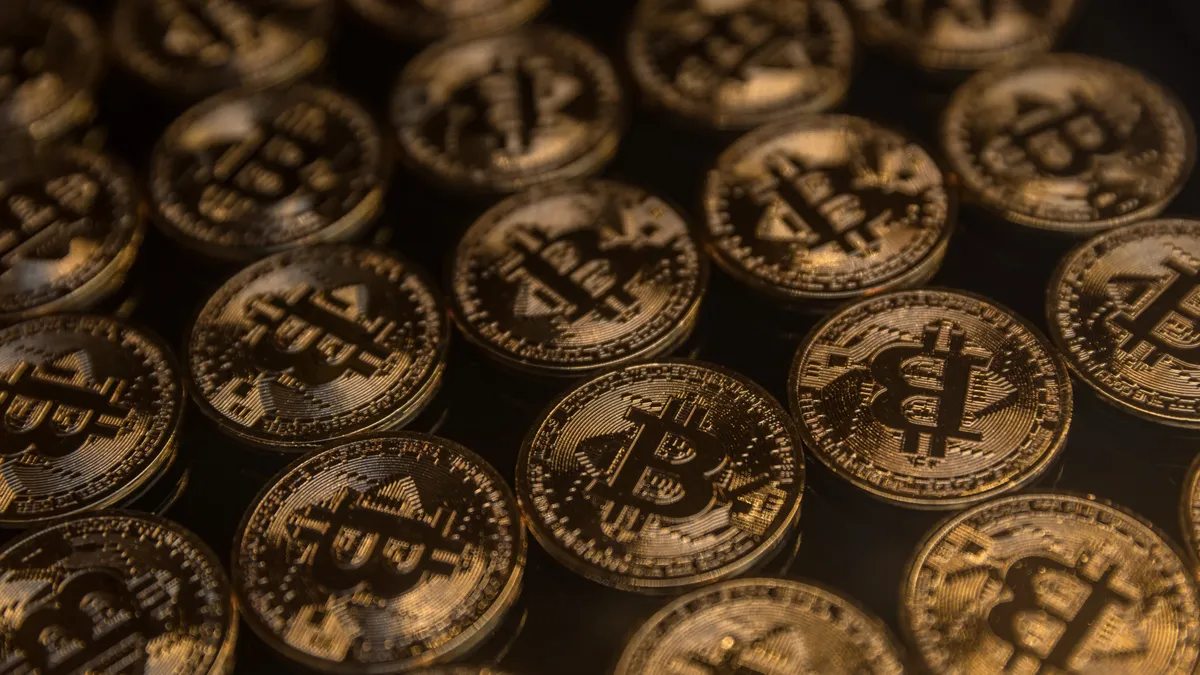As interest in the metaverse has taken off, interest in digital currency has also grown. The crypto market has seen a whirlwind of change, with many retailers beginning to accept digital currencies in recent years. In 2022, companies like DTC retailer Alo Yoga and Gucci expanded their payment options to include cryptocurrency.
The crypto hype struck enough of a chord that some retailers began to recruit specialists in the space. Just a year prior, Walmart was in search of a leader for digital and cryptocurrency products. The job posting described the position as someone who would focus on digital currency strategy, identify customer needs and search for related investments and partnerships.
Despite interest in crypto, some retailers have put an end to their crypto offerings or backed away. Many retailers expanded their payment options to include crypto last year, but the discussion around the payment method has since quieted, with fewer announcements from brands.
Martha Bennett, vice president and principal analyst at Forrester, said that crypto still remains volatile. The market has little broad interest with almost no new money coming in, Bennett says.
“[Cryptocurrency] didn't solve any problems in payments,” Bennett said. “People will always say, ‘Yeah, but it's instant, and everything,’ but that's much more easily and cheaply replaced with a real-time payment system.”
“So, there isn't really a reason for retailers to even say you can pay with cryptocurrency here, unless they can see an uplift from the cryptocurrency community and I don't think there's so much of that,” Bennett said.
After a rocky few years of crypto in retail, here is what three retailers' approach to the technology says about the market.
Pacsun
In 2021, Pacsun dubbed itself the first youth fashion retailer to accept cryptocurrency through Bitpay, a blockchain payment provider.
Pacsun’s decision to accept crypto stemmed from its target consumer Gen Z. The company also noted at the time of the announcement that its digital sales doubled from the previous year. Gen Z’s proficiency with tech and social media platforms means the generation is often one of the first to hop on digital trends.
Not every retailer targeting Gen Z also accepts crypto. American Eagle, another retailer in the young adult fashion sector said it would not accept crypto for NFTs in 2022. At the CommerceNext conference in June last year, Chief Marketing Officer Craig Brommers said its 15- to 25-year-old customer wasn’t ready for cryptocurrency.
When asked if the retailer still accepts cryptocurrency, Pacsun declined to comment. A list of payment methods on the retailer’s website includes a passing mention to BitPay, but it is not specifically listed as an available payment option.
As some retailers back away from crypto, it’s possible Pacsun’s target audience wasn’t a match.
When asked about the demographic of typical crypto users, Bennett said the data shows males aged 25 to 35, noticeably older than Pacsun’s target audience. Bennett noted that Gen Z is less interested than the next generation up, though it's hard to get samples of statistical significance on crypto users.
“Almost stereotypical,” Bennett said. “I mean, yes, there are sprinklings quite widely around the age groups. It's often those that do use cryptocurrency for making a payment, it is mainly males between 25 and 35 and some in the next 10-year age group.”
GameStop
Even some retailers that dove head-first into crypto have since backed away. For companies with other financial distractions, an investment in crypto isn’t certain to provide a return.
GameStop beta launched its digital asset wallet, dubbed GameStop Wallet, in May 2022. It allowed consumers to store, send, receive and use non-fungible tokens and cryptocurrency. The company launched the beta version of its NFT marketplace a few months later in July 2022.
Now-CEO Ryan Cohen initiated the company’s push to transform into a technology business during his role as board chairman. Cohen bought a financial stake in GameStop in 2020 and became an activist investor in 2021 with a mission to turn the retailer into a tech company after a history of what Cohen called “secular decline.”
This June, GameStop’s former CEO Matt Furlong was terminated and Cohen was named executive chairman before becoming CEO in September.
In August, however, the electronics retailer announced its decision to end support for its crypto wallet, “due to the regulatory uncertainty of the crypto space.” On Nov. 1, all crypto wallets through the retailer are set to be removed.
GameStop has struggled financially over the years, with sales in 2022 down 1.38%. However, for the first time in two years, the company posted a quarterly profit in March this year. For the second quarter, it reported net sales of about $1.16 billion, up from $1.14 billion year over year.
Like GameStop, Overstock is another retailer that took a part in crypto but has since backed away a few years ago. Overstock was the first online retailer to accept cryptocurrency bitcoin in 2014, an initiative pushed by company founder Patrick Byrne.
After the company lost millions of dollars betting on blockchain, Byrne left in 2019. His replacement, company veteran Jonathan Johnson, turned the retailer’s attention away from blockchain initiatives and back to just selling furniture.
Tag Heuer
Luxury retailers were big on accepting crypto and Tag Heuer joined that crowd in May 2022. With the brand’s announcement, Tag Heuer, owned by LVMH, began accepting 12 cryptocurrencies on its U.S. website.
The brand also invested in NFTs through its digital watches. According to the company’s site, customers can display their digital asset collection on a Tag Heuer Connected watch with verified proof of ownership by connecting their crypto wallet to the watch. The digital watch displays the artwork at the owner’s direction.
Around the same time Tag Heuer made the move, Kering announced that Balenciaga and Gucci would also accept crypto payment options.
Tag Heuer is still accepting crypto, according to the terms and conditions on its site.
Bennett said the luxury sector is more likely to accept crypto, given its customer base. Especially if a company is gold-backed, meaning its digital assets are backed by the equivalent price in physical gold.
However, some luxury companies have stepped away from crypto. Bennett gave Tesla as an example of a luxury retailer that has somewhat backed away from crypto. The company invested $1.5 billion in bitcoin in February 2021, according to sister publication CFO Dive.
Tesla CEO Elon Musk and CFO Zach Kirkhorn even added the titles “Technoking of Tesla” and “Master of Coin,” respectively, to their titles at the time.
Currently, Tesla only accepts Dogecoin and only on eligible items with the cryptocurrency logo, according to its site. In 2021, the retailer was accepting bitcoin for car purchases but suspended the initiative citing the rapid increase of fossil fuels used for bitcoin mining.
Retailers are still investing in the metaverse and crypto despite active skepticism and challenges in the space. In Bennett’s opinion, there are still uses that exist for crypto, but the technology needs more regulatory clarity.
“I think there needs to be some decisions about what [crypto] wants to be,” Bennett said. “Because we keep going round and round in circles with this, we need regulatory clarity… it sounds really boring but it needs to clean up its act… we need to get away from this illusion that technology alone can solve some really hard issues… so it's getting away from some of the, in some cases, it’s just idealism or utopianism.”























